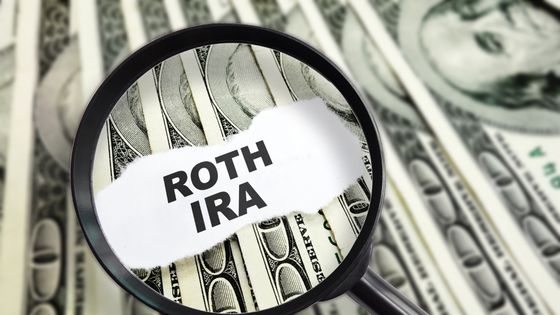Retirement planning is an important part of financial planning. It is the process of setting up a plan to save and invest money to fund your retirement. Retirement planning is a long-term process, and it is important to start planning early to make sure you have enough money to live comfortably when you retire. This blog post will discuss the best retirement plans and how you can make the most of them.


What is Retirement Planning?
Retirement planning is the process of setting up a plan to save and invest money to fund your retirement. This plan should include strategies for saving money, investing, and managing taxes. It also includes planning for your future lifestyles, such as health care and other expenses. Retirement planning can be done by yourself, with the help of a financial advisor, or with the help of retirement planning software.
Benefits of Retirement Planning
Retirement planning provides several benefits. First, it helps you determine how much money you need to save now to fund your retirement. Second, it helps you plan for the future lifestyle you want to have when you retire. Third, it helps you manage taxes so that you can maximize your retirement savings. Finally, retirement planning can help you identify and take advantage of opportunities to save and invest more.
The best retirement plans are those that provide the most flexibility. For example, some retirement plans allow you to choose how your money is invested, while others offer more limited options. It is important to research the different plans and find the one that best meets your retirement goals. Additionally, it is important to review your retirement plan periodically to ensure it is still meeting your needs.
Types of Retirement Plans
Retirement planning can be a daunting task, and it can be difficult to decide which retirement plan is best for you. There are many different types of retirement plans available, each with its own advantages and disadvantages. Here are five of the most popular retirement plans to consider:
Traditional IRA
A Traditional IRA is a retirement account that allows you to save pre-tax money and defer taxes until you withdraw the funds. Contributions to a Traditional IRA are tax-deductible and the earnings grow tax-deferred until you withdraw them. Withdrawals are taxed as ordinary income and, if taken before age 59 ½, may be subject to a 10% early withdrawal penalty. Contributions are limited to $6,000 per year ($7,000 if you are age 50 or older).
Roth IRA


A Roth IRA is similar to a Traditional IRA, but contributions are not tax deductible and earnings are not taxed when withdrawn. Contributions are limited to $6,000 per year ($7,000 if you are age 50 or older). Withdrawals of contributions are tax- and penalty-free, but earnings are subject to income tax and a 10% penalty if withdrawn before age 59 ½. However, due to religious reasons, Muslim people ask this question; is Roth IRA haram? A Roth IRA is not considered haram, or religiously forbidden, under Islamic law. The key is to make sure the funds are invested in permissible activities that do not conflict with Islamic teachings.
401(k) Plans
A 401(k) plan is a retirement plan offered by employers. Contributions are made with pre-tax dollars and earnings grow tax-deferred until withdrawn. Withdrawals are taxed as ordinary income and, if taken before age 59 ½, may be subject to a 10% early withdrawal penalty. Contributions are limited to $19,500 per year ($26,000 if you are age 50 or older). Employers may also match contributions up to a certain percentage.
SEP IRA
A SEP IRA is a retirement plan that is available to self-employed individuals and small business owners. Contributions are tax-deductible and earnings grow tax-deferred until withdrawn. Withdrawals are taxed as ordinary income and, if taken before age 59 ½, may be subject to a 10% early withdrawal penalty. Contributions are limited to 25% of your income or $57,000, whichever is less.
Annuities
An annuity is a contract between you and an insurance company. It allows you to make a lump sum payment or a series of payments in exchange for a guaranteed income stream for life. Annuities can provide a secure source of income in retirement, but fees and surrender charges can be high, so it is important to understand the terms of the contract before investing.
Factors to Consider When Choosing a Retirement Plan
Choosing the right retirement plan for you is an important decision. It can impact your financial security and quality of life during your retirement years. There are several factors to consider when selecting a retirement plan, such as tax benefits, investment options, and fees and expenses.
Tax Benefits
Tax benefits are an important factor to consider when selecting a retirement plan. Different plans offer various tax advantages, such as deductions or credits. For example, with a Traditional IRA, you may be eligible to deduct your contributions from your taxes. With a Roth IRA, you may be able to withdraw funds tax-free in retirement. It is important to research the tax benefits of a plan and how they can help you reach your goals.
Investment Options
When choosing a retirement plan, it is important to consider the investment options available. Different plans offer different types of investments, such as stocks, bonds, mutual funds, and ETFs. It is important to consider your risk tolerance and long-term goals when selecting an investment option. For example, if you are risk-averse, you may want to choose a plan that offers more conservative investments.
Fees and Expenses
Fees and expenses can have a significant impact on your retirement savings. It is important to understand the fees and expenses associated with a plan before you make a decision. Different plans charge different fees and expenses, such as administrative fees, investment fees, and annual fees. It is important to compare the fees and expenses of different plans to ensure you are getting the best deal.
Summary of Retirement Planning
Retirement planning is the process of planning for your financial future after you retire. This includes deciding how much money you need to save each month, which investments you should make, and which retirement plans you should use. Some of the most popular retirement plans include 401(k) plans, Roth IRAs, Traditional IRAs, and annuities. Each of these plans has different benefits and drawbacks, so it is important to consider all of your options before deciding which one is right for you.
Best Retirement Plan for You
The best retirement plan for you will depend on your individual needs and goals. If you are looking for a tax-advantaged way to save for retirement, a 401(k) plan or Roth IRA may be the best option. These plans allow you to make contributions with pre-tax dollars, and the earnings can grow tax-free. If you want to save for retirement but need more flexibility, a Traditional IRA or annuity may be the best choice. These plans offer more flexibility in how you can invest your money, but they may also come with higher fees and taxes.
Conclusion
Retirement planning is an important part of any financial plan. With so many different retirement plans available, it can be overwhelming to decide which one is the best for you. This article has outlined five of the best retirement plans available, each with its own advantages and disadvantages. It is important to do your research and find the plan that is best suited to your needs.














